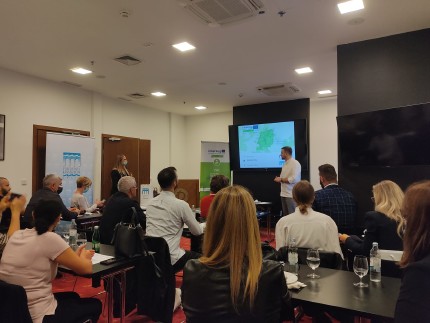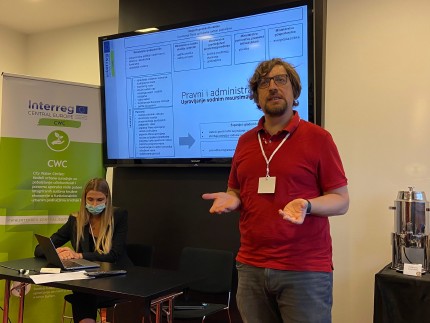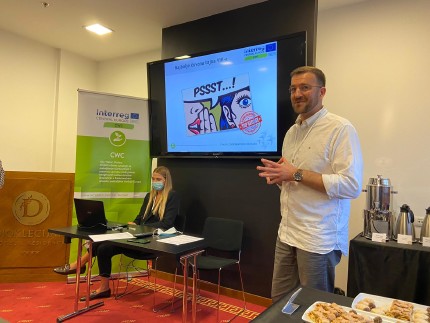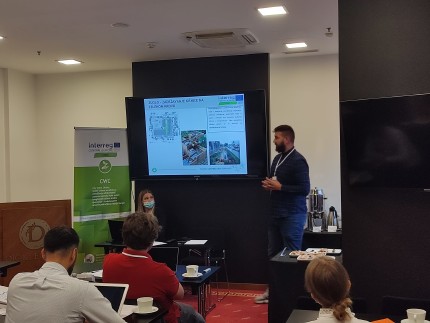How we need to change our water policy? - Roundtable discussion in Croatia
The Croatian project partners of CWC Split Water and Sewerage Company Ltd. and PI RERA S.D.organized a roundtable discussion on the national legal and policy regulation framework. On 7th October the key stakeholders gathered and discussed the importance of water preservation, reuse, raising awareness of water consumption among citizens, as well as promotion of a circular economy approach which offers many economic and environmental benefits.

Recommendations in water policy
Representative of University of Split, Faculty of Civil Engineering, Architecture and Geodesy, Mr Ivo Andrić PhD. gave an overview of laws and regulations addressing water management at the Republic of Croatia, complemented with a detailed description of the actions they govern. He also explained the policy recommendations based on the conducted analyses of Croatia’s national frameworks.

The brief findings of the national policy analysis and recommendations are the followings:
Challenges:
◾ Inexistent regulatory framework on water reuse, rainwater/stormwater collection, and reuse to streamline the legal planning and environmental assessments framework in compliance with EU legislation;
◾ inexistent national strategy for water conservation;
◾ low level of citizens/households connected to the sewage system;
◾ high losses in the water supply network;
◾ inexistent specific regulation on green roofs infrastructure;
◾ eco-innovation index lower than EU average;
◾ lack of citizen awareness on benefits of water and wastewater reuse and green roofs.
Recommendations:
◾ Adoption of EU Regulation on minimum requirements on water reuse and creation of national legal framework on water reuse and rainwater/stormwater collection reuse;
◾ development of a National Water Conservation Strategy;
◾ further implementation of the Multi-annual program for the construction of municipal water structures;
◾ development of a national and strategic framework on green roofs;
◾ to increase the level of incentives and subsidies for eco-innovations (water management, eco-labelling, waste management, etc.);
◾ introduction of advisory and information services for companies and the general public, start-ups, customers, professional training, qualifications and skills courses.
The national policy analysis and recommendations for Croatia are available in English and an in Croatian.
Stakeholders conclusion
After the presentations the national round table discussion began with an introduction greeting, given by the representative of Split Water and Sewerage Company Ltd., Mr Boris Bulović. The introduction was followed by Mr Bulović's brief presentation of the Project, the Project’s main objectives, the Transnational cooperation Programme from which the Project is funded, involved Project Partners, Project duration, budget, as well as the Project work packages, and related activities. The second presentation was held by the Project external expert Mr Ivan Baričević, on the topic of best cases developed within the Project.


During the creative debate, stakeholders agreed on the conclusions within the presented national level policy recommendations. The main focus of the discussion was the adaption of the EU regulation’s minimum requirements on water reuse; building up of the national legal framework on water reuse and rainwater/stormwater collection reuse; how to increase the level of incentives and subsidies for eco-innovations; and finally, what competencies and resources are needed for a sustainable change.
